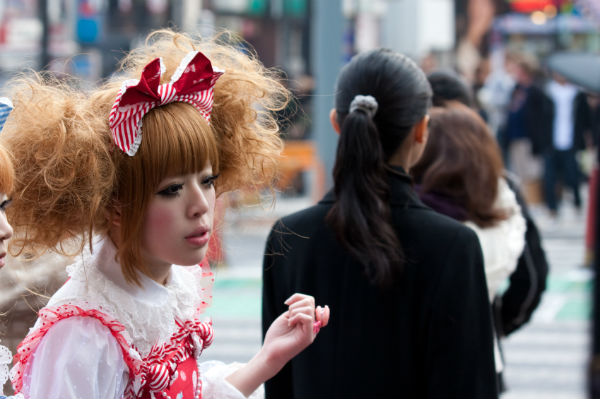Latest Articles
12.21.2012What Can Rendering Service Market Get From Cloud Computing?
12.20.2012Penetrating the Japanese Social Gaming World With the Help of Japanese Social Gaming Companies
12.19.2012Cloud-Based Rendering – the Logical Next Step for Render Farms
Archives

Call 855-466-4678
 A few months ago, the talk of social media gaming in Japan was centered around the new government regulations regarding kompu gacha. This mechanic was included in games by some of the biggest game social media games in Japan, including companies like GREE, Zynga, Klab, Konami, Sega, and Namco Bandai. Although the news caused shares to plummet and widespread panic about the future of social gaming in Japan, a few months later we're starting to see that the effect of regulations on these companies' bottom lines was minimal. Although there is no question that the gacha ruling did impact these companies' revenues, their numbers a few months after the incident are looking quite healthy.
Understanding the basics of kompu gacha
Mobile gaming in Japan is an extremely lucrative industry. One of the reasons for this is that many games incorporate what is known as gacha. This is usually a game mechanic involving a micro-transaction in exchange for random in-game items. Some game developers in Japan depend on gacha to the extent that about half of their revenue comes from this practice. In fact, this practice started to spread from Japan and many of these developers started to establish gacha successfully in North America (for example, Rage of Bahamut by DeNA immediately comes to mind.)
Kompu gacha goes a step farther (“kompu” means “complete” in English.) In the case of kompu gacha, players are rewarded for putting together sets of items, usually very rare items. In fact, getting whole sets can be quite expensive, running into the hundreds of thousands of yen. However, the addictive nature of these kinds of practices prompted the Japanese Consumer Affairs Agency to act by regulating these kinds of games. Due to the fact that kompu gacha is such an important percentage of many of these companies' revenues, it has lent itself to abuse, leading to many complaints from consumers. Most of these complaints deal with children having easy access to gacha in games, often purchasing hundreds of thousands of yen of in-game items in only a few days.
The predicted impact of regulation on the Japan's social gaming industry
Pressures from the public and from the media caused many of the major gaming companies to self-regulate. However, the government stepped in due to this practice's close resemblance with gambling. While the regulation is not particularly large, it was predicted to have a huge impact on the industry. After all, kompu gacha was a key profit generator for companies like GREE and DeNA. The stock in these companies plummeted by twenty percent after news got out and analysts predicted losses of up to fifty percent in these companies' profits! More importantly, most Japanese social gaming companies are in the process of expanding into the United States market. This raised concerns on the impact of gacha regulations on the North American market.
Impact of gacha regulations lower than expected
Although the media covered the initial news of gacha regulations extensively, the exact regulations on kompu gacha are yet to be made public. However, as major social gaming companies in Japan release their mid-year numbers, the impact of regulations was considerably lower than expected. Although the media was predicting huge losses just a few months ago, most social gaming companies in Japan have reported profits, some (such as DeNA) with impressive growth of around twenty percent. This growth is all the more impressive considering that companies like DeNA and GREE have already stopped using kompu gacha mechanics almost entirely, despite the fact that specific regulations have not been disclosed yet. It seems that spending on virtual money has allowed companies to overcome the loss of kompu gacha on their games. However, it is entirely possible that the full impact of the loss of kompu gacha will be felt during the rest of the year.
Is kompu gacha really necessary for success?
If one thing has been proven in the last months is that kompu gacha is not an essential element for profiting in the Japanese social media gaming market. While smaller companies started to abuse and manipulate this unsavory aspect of social media gaming, the largest players have proven that to be successful in social gaming, it is necessary to have strong fundamentals. These three basic points of building a successful gaming company in Japan include:
A few months ago, the talk of social media gaming in Japan was centered around the new government regulations regarding kompu gacha. This mechanic was included in games by some of the biggest game social media games in Japan, including companies like GREE, Zynga, Klab, Konami, Sega, and Namco Bandai. Although the news caused shares to plummet and widespread panic about the future of social gaming in Japan, a few months later we're starting to see that the effect of regulations on these companies' bottom lines was minimal. Although there is no question that the gacha ruling did impact these companies' revenues, their numbers a few months after the incident are looking quite healthy.
Understanding the basics of kompu gacha
Mobile gaming in Japan is an extremely lucrative industry. One of the reasons for this is that many games incorporate what is known as gacha. This is usually a game mechanic involving a micro-transaction in exchange for random in-game items. Some game developers in Japan depend on gacha to the extent that about half of their revenue comes from this practice. In fact, this practice started to spread from Japan and many of these developers started to establish gacha successfully in North America (for example, Rage of Bahamut by DeNA immediately comes to mind.)
Kompu gacha goes a step farther (“kompu” means “complete” in English.) In the case of kompu gacha, players are rewarded for putting together sets of items, usually very rare items. In fact, getting whole sets can be quite expensive, running into the hundreds of thousands of yen. However, the addictive nature of these kinds of practices prompted the Japanese Consumer Affairs Agency to act by regulating these kinds of games. Due to the fact that kompu gacha is such an important percentage of many of these companies' revenues, it has lent itself to abuse, leading to many complaints from consumers. Most of these complaints deal with children having easy access to gacha in games, often purchasing hundreds of thousands of yen of in-game items in only a few days.
The predicted impact of regulation on the Japan's social gaming industry
Pressures from the public and from the media caused many of the major gaming companies to self-regulate. However, the government stepped in due to this practice's close resemblance with gambling. While the regulation is not particularly large, it was predicted to have a huge impact on the industry. After all, kompu gacha was a key profit generator for companies like GREE and DeNA. The stock in these companies plummeted by twenty percent after news got out and analysts predicted losses of up to fifty percent in these companies' profits! More importantly, most Japanese social gaming companies are in the process of expanding into the United States market. This raised concerns on the impact of gacha regulations on the North American market.
Impact of gacha regulations lower than expected
Although the media covered the initial news of gacha regulations extensively, the exact regulations on kompu gacha are yet to be made public. However, as major social gaming companies in Japan release their mid-year numbers, the impact of regulations was considerably lower than expected. Although the media was predicting huge losses just a few months ago, most social gaming companies in Japan have reported profits, some (such as DeNA) with impressive growth of around twenty percent. This growth is all the more impressive considering that companies like DeNA and GREE have already stopped using kompu gacha mechanics almost entirely, despite the fact that specific regulations have not been disclosed yet. It seems that spending on virtual money has allowed companies to overcome the loss of kompu gacha on their games. However, it is entirely possible that the full impact of the loss of kompu gacha will be felt during the rest of the year.
Is kompu gacha really necessary for success?
If one thing has been proven in the last months is that kompu gacha is not an essential element for profiting in the Japanese social media gaming market. While smaller companies started to abuse and manipulate this unsavory aspect of social media gaming, the largest players have proven that to be successful in social gaming, it is necessary to have strong fundamentals. These three basic points of building a successful gaming company in Japan include:
 Nida Rasheed is a freelance writer and owner of an outsourcing company, Nida often finds herself wanting to write about the subjects that are closest to her heart. She lives in Islamabad, Pakistan and can be found on Twitter @nidarasheed.
Nida Rasheed is a freelance writer and owner of an outsourcing company, Nida often finds herself wanting to write about the subjects that are closest to her heart. She lives in Islamabad, Pakistan and can be found on Twitter @nidarasheed.